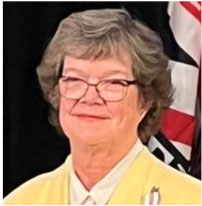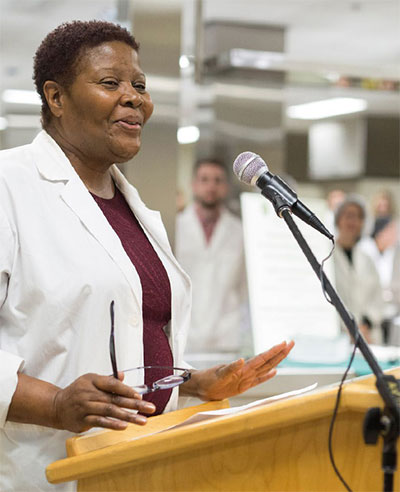Webinar Event
Food Systems, Resilience, and Nutrition Impact : Research into Action Series
A transformative webinar on Food Systems, Resilience, and Nutrition Impact. Hosted by the College of Pharmacy and Nutrition, and the Signature Area of Communities and Sustainability Research at the University of Saskatchewan.
February 6, 2025
10:00 - 11:30 AM (CST)
We are excited to invite you to our upcoming virtual webinar, the second in the Research Into Action Series on Food Systems, Resilience, and Nutrition Impact, hosted by the College of Pharmacy and Nutrition in collaboration with the USask Communities and Sustainability Signature Area of Research. As we enter 2025 – a landmark year for advancing nutrition and well-being – the webinar will highlight community-based research on food systems resilience and innovative approaches to addressing malnutrition and food insecurity. A key focus will be on the role of pulses as a powerhouse for combating malnutrition through climate-smart strategies and adaptive approaches drawing on research in Ethiopia. The event will feature research presentations by USask faculty and a panel discussion with experts from Global Affairs Canada, the Food and Agriculture Organization (FAO) and Protein Industries Canada to explore actionable solutions and priorities.
Moderator, Dominic Schofield, Global Director of Local Food Systems Transformation, TechnoServe and Professional Affiliate, College of Pharmacy and Nutrition, University of Saskatchewan
The work presented in this webinar has been supported through funding from Global Affairs Canada, the International Development Research Centre, the University of Saskatchewan and Nutrien.

Presentations
Poly-crises in Ethiopia: The Impact of Armed Conflicts and Adverse Weather Shocks on Household Food Security: Dr. Sabine Liebenehm, Assistant Professor, Department of Agricultural and Resource Economics, University of Saskatchewan
The Pluses of Pulses in the Global South: Linking Soil Health and Human Nutrition in East Africa: Dr. Susan Whiting, Distinguished Professor Emerita, College of Pharmacy and Nutrition, University of Saskatchewan
Panelists
Dr. Christopher Marinangeli – Director of the Centre for Regulatory Research and Innovation, Protein Industries Canada
Ms. Patrizia Fracassi, Senior Nutrition and Food Systems Officer, ESN, Food and Agriculture Organization
Dr. Olusola Sotunde – Senior Food Systems and Nutrition Adviser, Food Systems and Nutrition Division, Global Affairs Canada.
Closing Remarks: Dr. Carol Henry, Professor of Nutrition and Dietetics, College of Pharmacy and Nutrition, University of Saskatchewan
Speakers Presentations Overview
Poly-crises in Ethiopia: The Impact of Armed Conflicts and Adverse Weather Shocks on Household Food Security: Dr. Sabine Liebenehm
In Ethiopia, armed conflict and climate extremes are major drivers of acute food insecurity and hunger, reflecting global trends. Escalating violence, particularly in Amhara and Oromo regions, compounded by prolonged drought, highlight the critical link between peace and food security. This paper investigates the intersection of armed conflicts and adverse weather shocks in Ethiopia, focusing on their combined impact on household food security and potential mechanisms, such as changes in livelihood activities and external assistance. Using data from World Bank’s High-Frequency Phone Surveys (HFPS), Armed Conflict Location and Event Data (ACLED), and monthly high-resolution Standardized Precipitation Index (SPI), we analyze the potential impacts of droughts and conflict events. Empirically, we apply difference-and-difference and two-way fixed effects estimation to analyze effects across affected and unaffected communities’ pre and post conflict outbreaks. By integrating these datasets and using the monthly measures of household food security outcomes, we aim to shed light on the complex dynamics affecting vulnerable households in Ethiopia, offering insights for targeted interventions and resilience-building efforts
The Pluses of Pulses in the Global South: Linking Soil Health and Human Nutrition in East Africa – Dr. Susan Whiting
Pulses are a growing source of income for small-holder farmers, regenerate soil, and provide a promising solution to addressing malnutrition, particularly in vulnerable populations. Drawing on over 10 years of pulse research in Ethiopia, this presentation will highlight the extensive evidence supporting the health benefits of consuming pulses, focusing on young children under two, adolescent girls, and women of childbearing age in a Global South country. However, barriers to pulse consumption persist, including a lack of education about their nutritional value and the tendency of small landholders to prioritize selling their pulse crops over eating them. Addressing these challenges can unlock the potential of pulses as a sustainable means of improving nutrition and health outcomes.
Dr. Sabine Liebenehm
 Sabine Liebenehm is an Assistant Professor in Agricultural and Development Economics with a joined appointment with the Agricultural and Resource Economics Department and the Economics Department at the University of Saskatchewan. Sabine obtained her PhD from the Leibniz University Hannover, Germany.
Sabine Liebenehm is an Assistant Professor in Agricultural and Development Economics with a joined appointment with the Agricultural and Resource Economics Department and the Economics Department at the University of Saskatchewan. Sabine obtained her PhD from the Leibniz University Hannover, Germany.
In her research, Sabine seeks to improve the understanding of the economic decision-making among households living in rural and remote settings often exposed to an adverse environment with limited access to formal safety net mechanisms. She focuses on two aspects that determine the risk management decision: (i) the impact of adverse risks, and (ii) the interaction with people’s preferences and perceptions. To assess the research questions, Sabine applies empirical microeconomic strategies, leveraging rich data sets obtained from household surveys, lab-in-the-field experiments, social network studies, and climate data observations. Geographically, Sabine works primarily with rural agricultural households in Southeast Asia and West Africa, and more recently with remote First Nation communities in Northern Canada.
Dr. Susan Whiting
 Dr. Susan Whiting BSc MSc PhD FCNS FCAHS is Distinguished Professor Emeritus of Nutrition, University of Saskatchewan where she taught in the Nutrition and Dietetics program. She also taught and co- supervised graduate students at Hawassa University, Ethiopia since 2009. Her research spans dietary influences on bone health, effectiveness of calcium and vitamin D, and food security at local, institutional and international levels. She is a member of Scientific Advisory Board of Osteoporosis Canada and is Associate/Deputy Editor on several international journals. She has served on international advisory committees related to bone health, dietary supplements, vitamin D, and pulses.
Dr. Susan Whiting BSc MSc PhD FCNS FCAHS is Distinguished Professor Emeritus of Nutrition, University of Saskatchewan where she taught in the Nutrition and Dietetics program. She also taught and co- supervised graduate students at Hawassa University, Ethiopia since 2009. Her research spans dietary influences on bone health, effectiveness of calcium and vitamin D, and food security at local, institutional and international levels. She is a member of Scientific Advisory Board of Osteoporosis Canada and is Associate/Deputy Editor on several international journals. She has served on international advisory committees related to bone health, dietary supplements, vitamin D, and pulses.
Dr. Olusola Sotunde
 Olusola Sotunde is currently a Senior Food Systems and Nutrition Advisor in the Global Health and Food Systems Bureau at Global Affairs Canada. She previously served as a Health and Nutrition Specialist at Global Affairs Canada. Dr. Sotunde was a Postdoctoral Research Fellow at Mary Emily Clinical Nutrition Research Unit, McGill University, Montreal Canada. Olusola holds a PhD from the Centre of Excellence for Nutrition at North West University, Potchefstroom South Africa, a Master of Science and a Bachelor of Science in Nutrition and Dietetics from the Federal University of Agriculture, Abeokuta, Nigeria.
Olusola Sotunde is currently a Senior Food Systems and Nutrition Advisor in the Global Health and Food Systems Bureau at Global Affairs Canada. She previously served as a Health and Nutrition Specialist at Global Affairs Canada. Dr. Sotunde was a Postdoctoral Research Fellow at Mary Emily Clinical Nutrition Research Unit, McGill University, Montreal Canada. Olusola holds a PhD from the Centre of Excellence for Nutrition at North West University, Potchefstroom South Africa, a Master of Science and a Bachelor of Science in Nutrition and Dietetics from the Federal University of Agriculture, Abeokuta, Nigeria.


